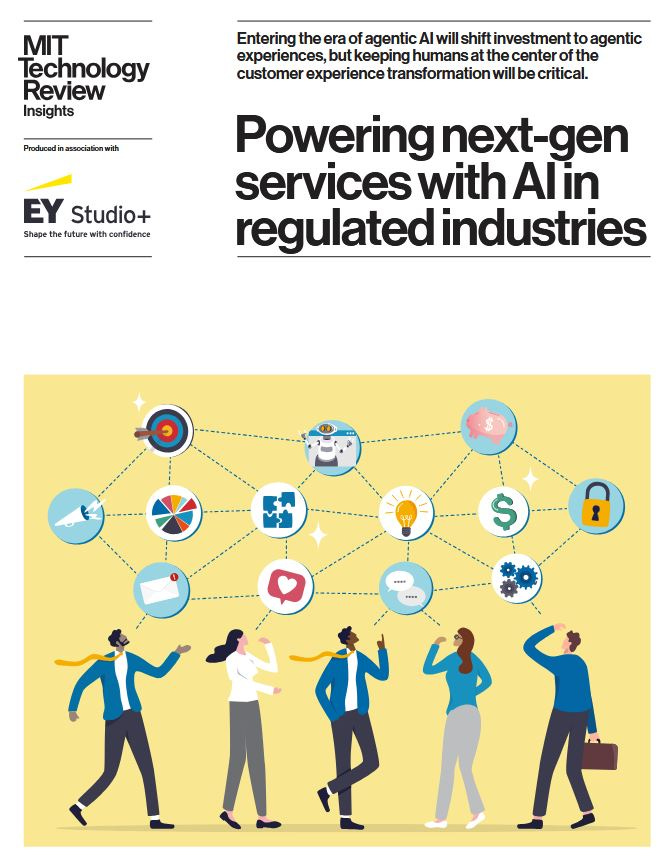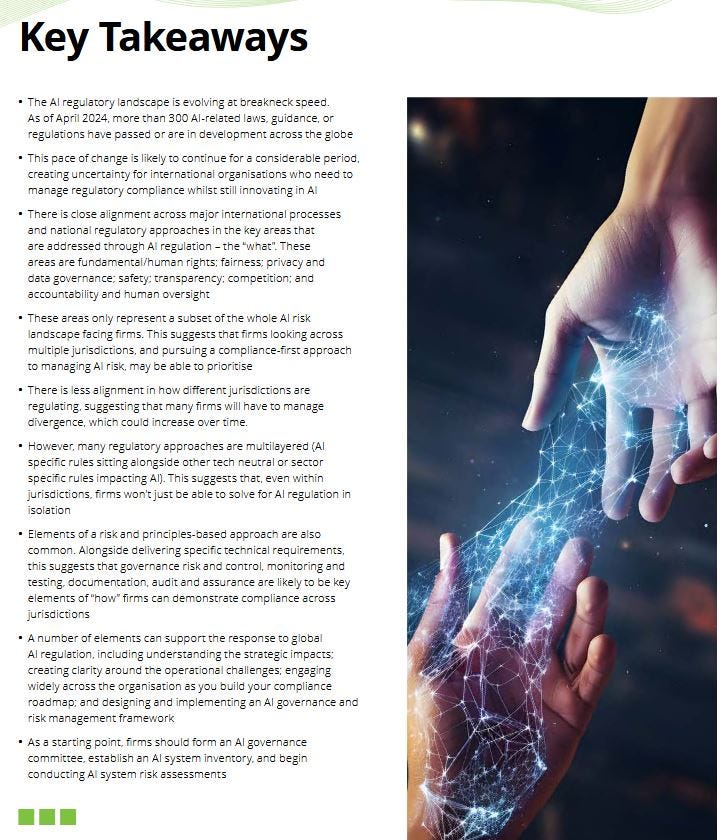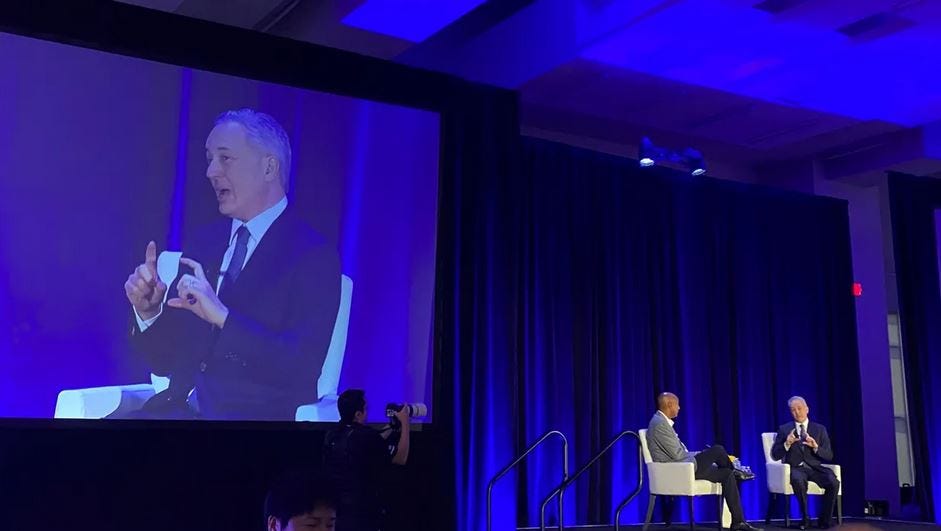🤖 AI Policy this week #052. Meta sues ‘nudify’ app; Disney and Universal sue Midjourney; El Salvador appoints AI Agency director
A quick summary of news, reports and events discussing the present and future of AI and the governance framework around its development.
Legal battles around AI multiply. “Deep fakes” have been a major area of concern, and Meta decided to sue Joy Timeline HK Limited, the operator behind the CrushAI apps, which allow users to create AI-generated nude images of people. Another big issue is copyright, and Disney with Universal are filing the first AI lawsuit from Hollywood on this matter against Midjourney. Meanwhile, in France President Macron hails 'historic' partnership between Mistral AI and Nvidia.
1. News
Meta sues operator of AI ‘nudify’ apps over policy violations.
According to Meta, the company has filed a lawsuit against Joy Timeline HK Limited, the operator behind the CrushAI apps, which allow users to create AI-generated nude images of people without their consent, which are also known as deep fakes. The legal action, filed in Hong Kong, aims to stop the company from promoting these apps on Meta’s platforms after repeated violations of advertising rules. “This legal action underscores both the seriousness with which we take this abuse and our commitment to doing all we can to protect our community from it. We’ll continue to take the necessary steps – which could include legal action – against those who abuse our platforms like this,” Meta said in a post.
Meta Invests Nearly $15 Billion in Scale AI to Kick-Start Superintelligence Lab.
Meta said that it planned to invest nearly $15 billion in Scale AI, a start-up that works with data to train artificial intelligence systems, in a deal that Meta hopes will add needed muscle to its disappointing A.I. division. As a condition of the deal, Alexandr Wang, Scale AI’s 28-year-old chief executive, plans to join Meta in a top leadership role in the new division, which Meta is calling its Superintelligence lab. Mr. Wang, whom people inside Meta have taken to calling a visionary leader, will also bring a team of employees from Scale AI to work at Meta.
Disney and Universal sue AI image company Midjourney for Copyright Infringement.
Disney and Universal joined forces in a lawsuit against artificial intelligence image creator Midjourney, alleging copyright infringement. It is the first AI copyright lawsuit from Hollywood giants. The lawsuit claims that the company used and distributed AI-generated characters from the movie studios like Star Wars, The Simpsons and other films and alleges that Midjourney disregarded requests to stop. Disney and Universal are demanding a jury trial, arguing that the actions threaten to “upend the bedrock incentives of U.S. copyright law.” ″Midjourney, which has attracted millions of subscribers and made $300 million last year alone, is focused on its own bottom line and ignored Plaintiffs’ demands,” the suit says.
South Korea’s financial authorities accelerate AI use guidelines in line with Lee's initiative.
Financial authorities are accelerating efforts to revise guidelines on the use of artificial intelligence (AI) in the financial sector, in line with the newly launched Lee Jae-myung administration's push to make AI-related legislation a core policy, officials said Thursday. Lee has pledged to invest 100 trillion won ($73 billion) in AI and to position Korea as one of the world's top three AI powerhouses. He has also established a senior presidential secretary for AI within the presidential office. To align with the new administration's AI policy direction, the Financial Services Commission (FSC) recently signed an additional contract worth 20 million won to broaden an ongoing research project aimed at revising AI use guidelines in the financial sector.
New AI minister says Canada won’t ‘over-index’ on AI regulation.
Canada’s new minister of artificial intelligence (AI) and digital innovation says he plans to focus on AI’s economic benefits instead of “over-indexing” on regulation, marking a shift away from the previous government’s attempts to strike a balance between the two. One of the key aspects of regulating AI is not to put a saddle on “the bucking bronco called AI innovation,” Minister Evan Solomon said at the Canada 2020 conference, put on by the progressive think tank of the same name, in Ottawa this week. “But it is to make sure that the horse doesn’t kick people in the face.
Mario Flamenco Appointed to Lead El Salvador’s National Artificial Intelligence Agency.
Mario Flamenco has been named director of El Salvador’s new National Artificial Intelligence Agency (ANIA), created to oversee AI development and integration in the country. With a strong background in tech education and international collaboration, Flamenco aims to prioritize training local talent and attracting ethical, long-term investment. Under his leadership, ANIA will focus on education, regulation, and fostering innovation, positioning El Salvador as a pioneer in national AI governance.
US Food and Drug Administration to Use A.I. in Drug Approvals to ‘Radically Increase Efficiency’.
The Food and Drug Administration is planning to use artificial intelligence to “radically increase efficiency” in deciding whether to approve new drugs and devices, one of several top priorities laid out in an article. Another initiative involves a review of chemicals and other “concerning ingredients” that appear in U.S. food but not in the food of other developed nations. And officials want to speed up the final stages of making a drug or medical device approval decision to mere weeks, citing the success of Operation Warp Speed during the Covid pandemic when workers raced to curb a spiraling death count.
2. Reports, Briefs and Opinion Pieces:
“Powering next-gen services with AI in regulated industries”, by MIT Technology Review Insights in association with EY.
Key takeaways:
AI for CX is already ubiquitous across regulated industries—and agentic AI is on the rise. Existing rigor in governance and compliance can help accelerate implementation and support innovation.
Prioritizing privacy and security, integrating systems and data, and building trust with customers will be essential for the coming era, where AI agents could handle more complex or sensitive tasks without human intervention.
But humans will still be vital to the AI-powered CX journey. Companies need to fully understand customer needs and design their systems in line with them, continuously testing, updating, and refining.
“AI risk and approaches to global regulatory compliance”, by Deloitte.
“This major report is intended to support internationally-active companies who are developing and deploying AI strategies and systems with their understanding of the regulatory space. It identifies the patterns, trends, and strategic implications in an evolving regulatory landscape to support companies with their compliance journeys”.
“2025 Global Startup Ecosystem Report (GSER)” by Startup Genome, in partnership with the Global Entrepreneurship Network.
For the first time, the GSER rankings include an AI Factor, tracking the race to transition startup ecosystems to AI Native ecosystems. With 90% of current AI funding concentrated in the U.S. and China, economies that don't rapidly implement targeted entrepreneurial AI policies risk losing billions instead of emerging as tomorrow's innovation powerhouses.
3. Events:
VivaTech 2025 (Jun 11-14th, Paris, France).
On the stage of the VivaTech trade fair on Wednesday, June 11, French President Emmanuel Macron was full of praise for the initiative announced just hours earlier by the French artificial intelligence start-up, Mistral AI, and the American world leader in AI chips, Nvidia. "This [partnership] is a game changer, because it will increase our sovereignty and it will allow us to do much more”. "It's historic," the president added to CEOs Arthur Mensch and Jensen Huang, who stood by his side. Beginning in 2026, Mistral will launch a European platform dedicated to AI and powered by Nvidia processors.
AI Summit London 2025 (Jun 11-12th, London, UK).
London Tech Week was a showcase for the government's AI ambitions, with prime minister Sir Keir Starmer opening the event, followed by appearances from the secretary of state. The chancellor gave details on how the $2.7 billion in funding assigned to the AI Opportunities Action Plan would be spent. One of the key announcements was $1.4 billion to increase the U.K.'s compute power 20-fold, addressing a critical gap in the country's AI infrastructure. This follows comments from Nvidia CEO Jensen Huang, who noted in a talk the previous day that "the U.K. is the largest AI ecosystem in the world without its own infrastructure."
AWS Summit Washington (Jun 10-11th, Washington, DC, US).
White House AI and Crypto Czar David Sacks said: “at the level of public discourse, I’m afraid we’re losing this perception battle around AI when it comes to this kind of AI doomerism. (...) It’s very important for the people in this room to stay involved, to get organized and speak out on behalf of industry.” Sacks promoted policies that align with the Trump administration’s light-touch regulatory approach, criticized the proliferation of state-level bills to applaud the reversal of Biden-era executive orders.
Thanks for reading, please share any comments and see you next week.








